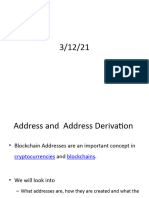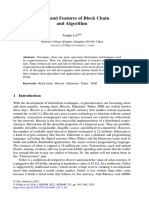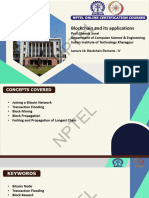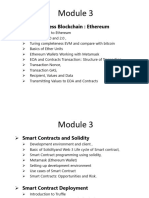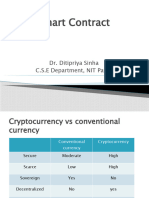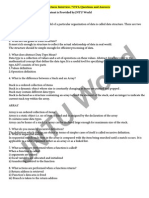0% found this document useful (0 votes)
183 views29 pagesHow To Generate Bitcoin and Ethereum Addresses: Tuna Tore - Founder at Https://mycrypto - Tools
This document provides an overview of a cryptocurrency course that teaches how to generate Bitcoin and Ethereum addresses and send cryptocurrency to those addresses. The course aims to teach students how to 1) create private keys and addresses offline for Bitcoin and Ethereum, 2) send cryptocurrency to the generated addresses, 3) have complete ownership of their public/private keys and source codes for address generation, and 4) understand how addresses are created and the blockchains of Bitcoin and Ethereum. The course is organized into 3 sections covering introductions, Bitcoin, and Ethereum.
Uploaded by
Dileep KumarCopyright
© © All Rights Reserved
We take content rights seriously. If you suspect this is your content, claim it here.
Available Formats
Download as PDF, TXT or read online on Scribd
0% found this document useful (0 votes)
183 views29 pagesHow To Generate Bitcoin and Ethereum Addresses: Tuna Tore - Founder at Https://mycrypto - Tools
This document provides an overview of a cryptocurrency course that teaches how to generate Bitcoin and Ethereum addresses and send cryptocurrency to those addresses. The course aims to teach students how to 1) create private keys and addresses offline for Bitcoin and Ethereum, 2) send cryptocurrency to the generated addresses, 3) have complete ownership of their public/private keys and source codes for address generation, and 4) understand how addresses are created and the blockchains of Bitcoin and Ethereum. The course is organized into 3 sections covering introductions, Bitcoin, and Ethereum.
Uploaded by
Dileep KumarCopyright
© © All Rights Reserved
We take content rights seriously. If you suspect this is your content, claim it here.
Available Formats
Download as PDF, TXT or read online on Scribd
/ 29
